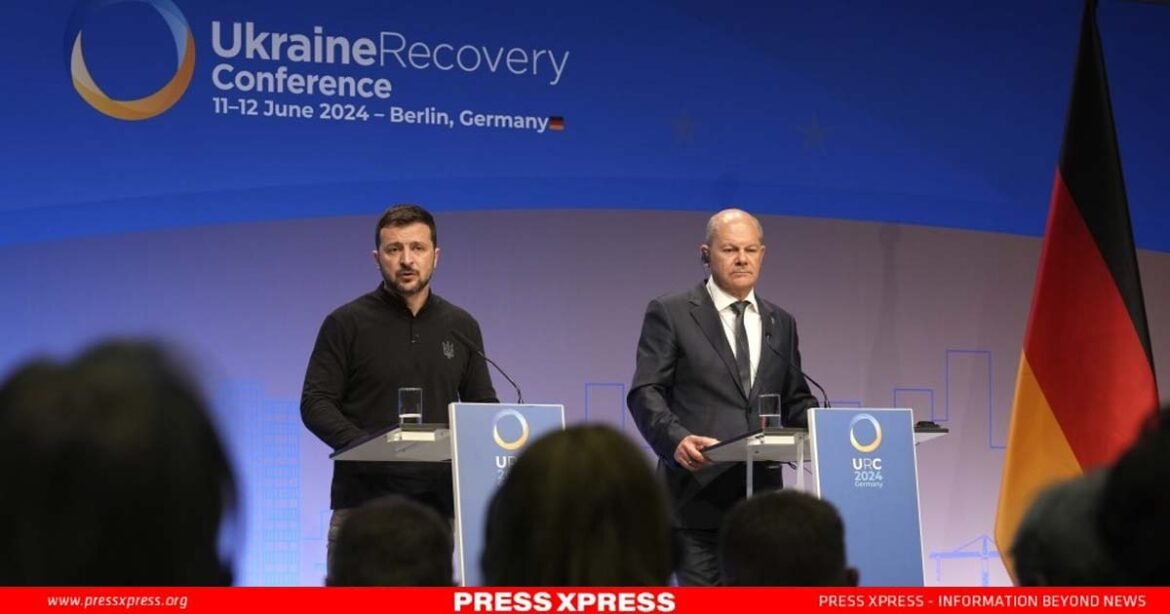- Swiss summit aims to galvanize international opinion on the conflict
- Strong U.S. and European leadership needed to maintain international resolve
- President Zelensky emphasizes openness to peace proposals
Swiss President Viola Amherd announced on Monday that around 90 states have confirmed their participation in a peace summit on June 15-16, aimed at agreeing on a path towards ending the nearly 28-month-long war in Ukraine. However, Russia, whose forces invaded Ukraine in February 2022, will not be present at the conference hosted by Switzerland at Kyiv’s request.
You can also read: Joe Biden’s Son found guilty of all charges in historic federal gun trial
Bern has stated that Russia was not invited as it had signaled disinterest in participating. Moscow has criticized Switzerland, claiming it is no longer a neutral country due to its alignment with European Union sanctions imposed on Russia. However, the Swiss government said the gathering would aim to ‘jointly define a roadmap’ on involving both Russia and Ukraine in a future peace process.
Aim of the Summit
The conference aims to achieve a common understanding for lasting peace and address issues like nuclear security, humanitarian aid, and food security. While the summit itself is not a negotiating forum, it serves as a high-level conference to create a jointly supported foundation for future negotiations. The path to a peace process is undoubtedly long and arduous, with success far from guaranteed. However, the Swiss Federal Council recognizes that achieving a lasting solution will ultimately require the involvement of both parties to the conflict.

By facilitating these discussions, Switzerland is playing a pivotal role in promoting increased security and stability not only in Ukraine but throughout Europe and the broader global community. The summit represents a crucial first step towards initiating a peace process and working out the necessary steps to achieve a comprehensive and just peace in Ukraine.
The Federal Council acknowledges the complexities involved, understanding that reaching a lasting solution will demand unwavering commitment and cooperation from all stakeholders. Nonetheless, this summit could mark the beginning of an arduous but essential journey, one that the international community must undertake to resolve the conflict and establish a sustainable path towards peace and reconciliation.

While the road ahead is fraught with challenges, the Summit on Peace in Ukraine offers a glimmer of hope – a chance for the global community to come together, exchange ideas, and collectively work towards a future where the people of Ukraine can live in peace and security. It is a testament to the power of diplomacy and the unwavering pursuit of justice, serving as a reminder that even in the face of adversity, the world can unite in the pursuit of a better tomorrow.
Diverse Participation and Attendance
According to Viola Amherd, the confirmed participants include ‘a handful’ from organizations like the United Nations, while the rest represent countries, with about half sending a head of state or government. Notable attendees include French President Emmanuel Macron and German Chancellor Olaf Scholz. The United States will be represented by Vice President Kamala Harris and National Security Advisor Jake Sullivan, as President Joe Biden will not attend. While around 160 invitations were sent, Amherd denied that Switzerland was ‘disappointed’ with fewer than 100 countries attending. The invitation list sought to drum up support among countries with better relations with Moscow than leading Western powers. However, key developing countries like Turkey and South Africa have not indicated their attendance, and while India has confirmed participation, the level of representation remains unclear. Brazil and China have stated they will not take part unless both Russia and Ukraine are at the table, according to Swiss officials.

Last week, Beijing rejected accusations from Ukrainian President Volodymyr Zelenskyy that it was cooperating with Russia to undermine the summit by pressuring other countries not to attend.
Ukraine’s peace summit could be a game-changer
As Ukraine faces escalating threats this summer, the country urgently needs robust diplomatic, security, and economic support from the West. Military aid from the U.S. and Europe is increasing, but political and diplomatic backing is also crucial. Two major events—the Summit on Peace in Ukraine in Switzerland in June and NATO‘s 75th anniversary summit in Washington in July—present key opportunities to reinforce this support.
The Biden administration can push for more urgent diplomatic engagement and consolidate military support at the NATO summit.
Challenges have delayed aid, impacting Ukraine’s defense as Russia prepared for new offensives. Now, Russia has 400,000 troops in Ukraine, threatening critical infrastructure and cities like Kharkiv. Global attention is divided, with crises in Israel and Gaza and upcoming elections in the U.S. and Europe potentially weakening support for Ukraine.
The Swiss summit is a significant effort to rally global support beyond Western allies. Over 100 nations and organizations are expected to attend, though Russia is excluded. President Zelensky has emphasized openness to peace proposals, aiming to unify international opinion.
However, Russia and its allies see the summit as a threat, with China and Brazil proposing alternative conferences. Strong leadership from the U.S. and Europe is crucial to maintain international resolve.


